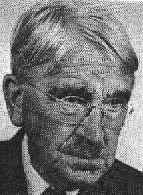 John Dewey believed that
teaching thinking is wrongly separated from skill development and information
gathering simply for the sake of efficiency. He indicates that this is
not only ineffective, but also harmful. Disconnected skills leave a man "...at
the mercy of his routine habits and at the authoritative control of others..."
As well, information without thought can be "...mind crushing". When problem
solving is connected with curricular activities, it becomes a meaningful method of learning.
When teachers bring the three
elements - thinking, skill development and information gathering together,
powerful learning can occur.
John Dewey believed that
teaching thinking is wrongly separated from skill development and information
gathering simply for the sake of efficiency. He indicates that this is
not only ineffective, but also harmful. Disconnected skills leave a man "...at
the mercy of his routine habits and at the authoritative control of others..."
As well, information without thought can be "...mind crushing". When problem
solving is connected with curricular activities, it becomes a meaningful method of learning.
When teachers bring the three
elements - thinking, skill development and information gathering together,
powerful learning can occur.
|
|
|
|
| I. Experience | Unscholastic (real and relevant) experiences | A player happens upon this interesting game. He or she probably loses or gets lucky and wins. |
| II. Data Gathering | A difficult but not overwhelming situation is perceived. | Motivation sets in and the player wants to know how to win. "What's the secret?" |
| III. Ideas | Probable and reasonable solutions are revealed. | Through research, hints and experience, ideas come to the player. The Fruit Game |
| IV. Testing Ideas | Anticipation of solutions provides continuity. | The player applies strategies that are successful. |